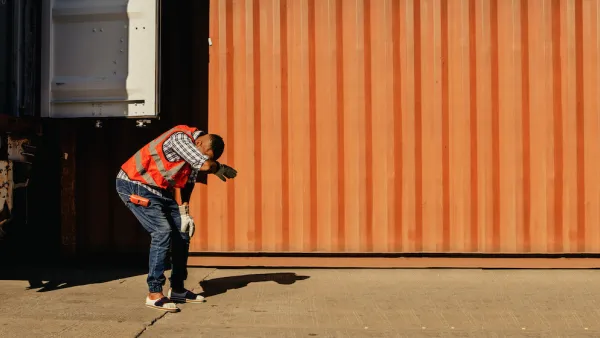This summer's heat waves wreaked havoc on physical infrastructure, but also highlighted vulnerabilities in our social support systems.

"In an era of escalating climate change," asserts Sarah Kaplan, "extreme heat is the United States’ most fatal form of weather disaster. Already this summer, hundreds of Americans have lost their lives amid a series of record-setting heat waves that scientists say would not have happened if not for human-caused warming." In Oregon and across the Pacific Northwest, "[r]oads have buckled, and train cables have melted. Emergency departments were overwhelmed."
In addition to physical infrastructure, officials "are realizing their social infrastructure is equally in need of repair. Long-standing inequities in housing and health care put the region’s poorest residents at greatest risk. Official warnings and government services didn’t reach those who most needed the help. Almost every victim of the heat wave died alone," Kaplan writes.
"When the heat dome scorched the state last month, Oregon did not have a heat early warning and response system, the gold standard for disaster planning. Residents in the typically temperate region didn’t know how to cope with extreme temperatures" and many didn't receive information about how to protect themselves.
"The most effective strategy for preventing heat deaths is direct outreach, experts say. After a brutal nine-day heat wave killed 118 people in Philadelphia in 1993, the city implemented one of the nation’s most robust heat response programs." Later, "[a] study by a team of Boston researchers found that the Philadelphia system averted an average of 45 deaths per year."
According to Gabriela Goldfarb, manager of the Oregon Health Authority (OHA)'s environmental public health section, "[p]reventing deaths during climate disasters is not just about emergency response, but rather "about building 'social resilience,' addressing the isolation and inequality that make people vulnerable in the first place" by reducing the effects of urban heat islands, expanding access to health care, and funding better outreach for marginalized communities.
FULL STORY: Heat waves are dangerous. Isolation and inequality make them deadly.

Analysis: Cybertruck Fatality Rate Far Exceeds That of Ford Pinto
The Tesla Cybertruck was recalled seven times last year.

National Parks Layoffs Will Cause Communities to Lose Billions
Thousands of essential park workers were laid off this week, just before the busy spring break season.

Retro-silient?: America’s First “Eco-burb,” The Woodlands Turns 50
A master-planned community north of Houston offers lessons on green infrastructure and resilient design, but falls short of its founder’s lofty affordability and walkability goals.

Test News Post 1
This is a summary

Analysis: Cybertruck Fatality Rate Far Exceeds That of Ford Pinto
The Tesla Cybertruck was recalled seven times last year.

Test News Headline 46
Test for the image on the front page.
Urban Design for Planners 1: Software Tools
This six-course series explores essential urban design concepts using open source software and equips planners with the tools they need to participate fully in the urban design process.
Planning for Universal Design
Learn the tools for implementing Universal Design in planning regulations.
EMC Planning Group, Inc.
Planetizen
Planetizen
Mpact (formerly Rail~Volution)
Great Falls Development Authority, Inc.
HUDs Office of Policy Development and Research
NYU Wagner Graduate School of Public Service




























